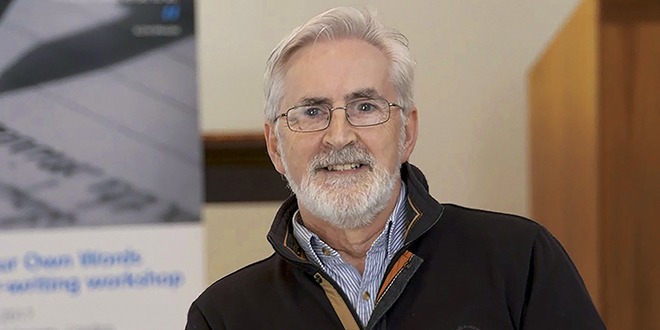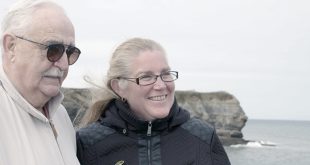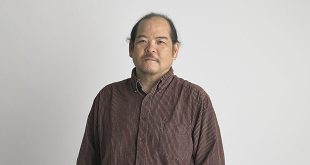People with type 2 diabetes write back to their younger selves, to share personal insights and reflect on their experience of living with diabetes and starting on insulin therapy. In this post, Charles reflects on living with diabetes.
A music lover who goes to the opera as often as he can, Charles is an extroverted Scot who now lives in Ipswich, UK. He works as an associate practitioner in a day surgery centre at a hospital, an excellent job that once seemed entirely out of reach. Charles comes from an impoverished background. He grew up without hot water and often went without breakfast or lunch.
But his employer encouraged him to grow professionally and paid for him to get a foundation degree in Health and Social Care, which was awarded in 2013. “I never expected to reach higher education at all in my life, so when I got the chance I grabbed it with both hands. It meant I was given a promotion in my job and the chance to go further than I ever could have imagined,” he explains.
Charles was first diagnosed with type 2 diabetes at 40, after a spate of changes. He had joined a new doctors’ surgery, had recently divorced and moved home. Yet he was, characteristically, unruffled by the news.
“I was quite pragmatic and stoic with regard to the condition, so accepted it quite readily,” he says. “I continued with my life and experienced no significant changes to my personal or professional relationships. I truly felt that I was coping very well with the situation.”
After a year or so of trying to control his blood sugar through diet, Charles was moved to tablets. Then, at age 50, a diabetic nurse suggested he introduce insulin to his existing treatment plan of diet, exercise and tablets. Though he went on to insulin without any fear, he currently wishes there were some things he had known. Now 61, Charles is writing to his younger self at 50.
Dear Charlie
You feel buoyant and full of life. You have a good job and a good family. When your diabetic nurse suggested that perhaps it’s time to start insulin, you readily agreed, without hesitation or a second thought. After all, you have no fears. Your partner is diabetic and on insulin. That makes it easy to start. Your friends and family are acquainted with diabetes, its risks, complications and implications.
Unfortunately, Charlie, you are missing the vital ingredient: acknowledgement! You haven’t asked any questions with regard to what types of insulin you would be injecting or the effects it might have. You haven’t asked what difference it will make to your life and your diabetes.
My message to you, Charlie, is that you must acknowledge the changes that are going to take place and research well to get the information that is going to take you forward in keeping control of your blood sugar. Though you have prided yourself on being pragmatic, you haven’t really looked below the surface of what it means to ‘have diabetes’. Deep down, you haven’t wanted to admit that you have a serious condition that warrants serious thought. You’ve accepted your condition, but only superficially.
Be less cavalier and be more inquisitive. Own up to having diabetes and take charge of your future. Learn about the implications of adding insulin to your treatment plan, such as how injections and checking your blood sugar will impact your routine, as well as understanding any potential side effects, such as hypoglycaemia. Learn to recognise that family and friends have your best interest at heart when they offer advice – or suggest that maybe that’s one biscuit too many.
If you investigate fully you will likely improve your blood sugar control and potentially reduce the risk of developing other health problems. Better health will make the greatest accomplishment of your life, getting a degree in Health and Social Care at age 57, all the sweeter. And you’ll propel your education even further, by taking a course that will lead to a full nursing degree.
Consider, you do have a future. Make it the best you can,
Charlie
This story has been edited by Ellyn Spragins and shared with support from Novo Nordisk Canada. The views and opinions expressed are not representative of Novo Nordisk, and should not be considered treatment advice. Novo Nordisk has permission to share this letter and included personal details.
 Diabetes Care Community Learn, connect and care
Diabetes Care Community Learn, connect and care




